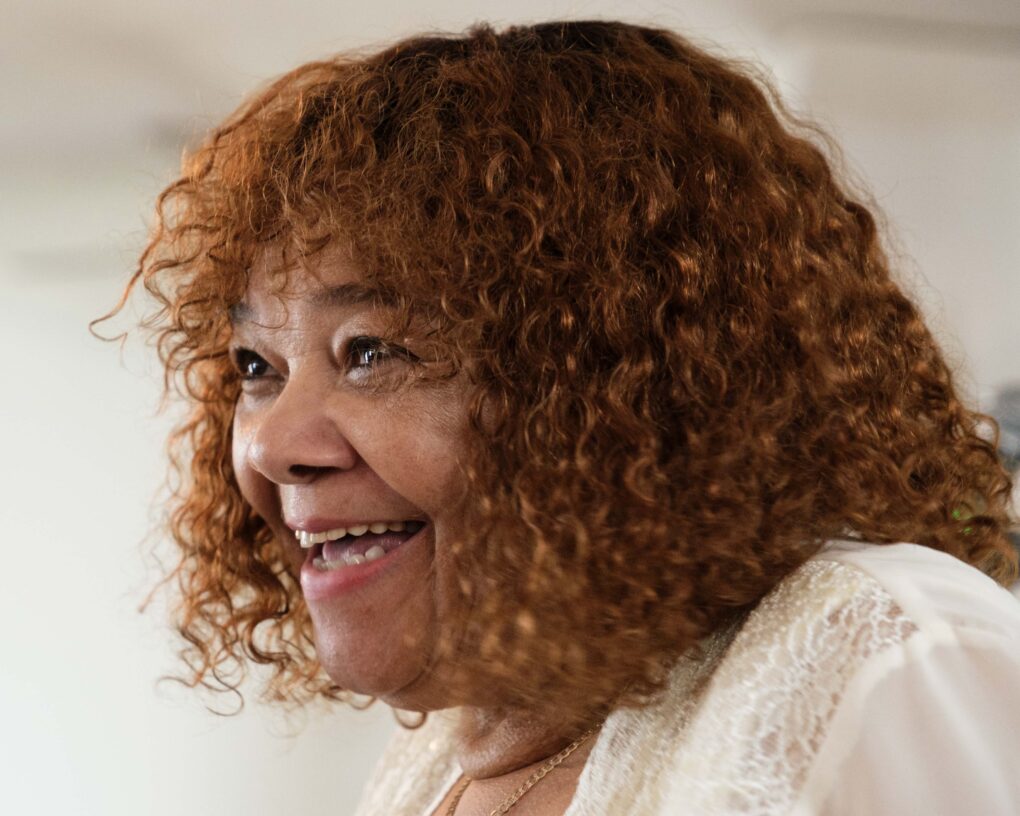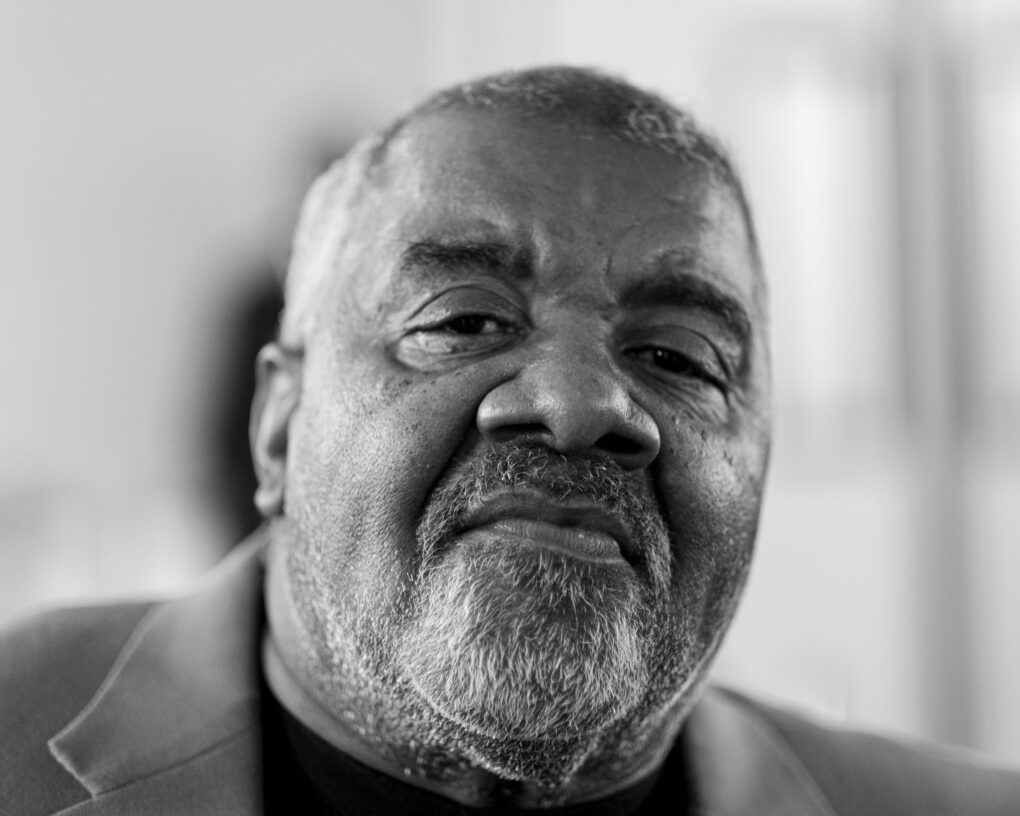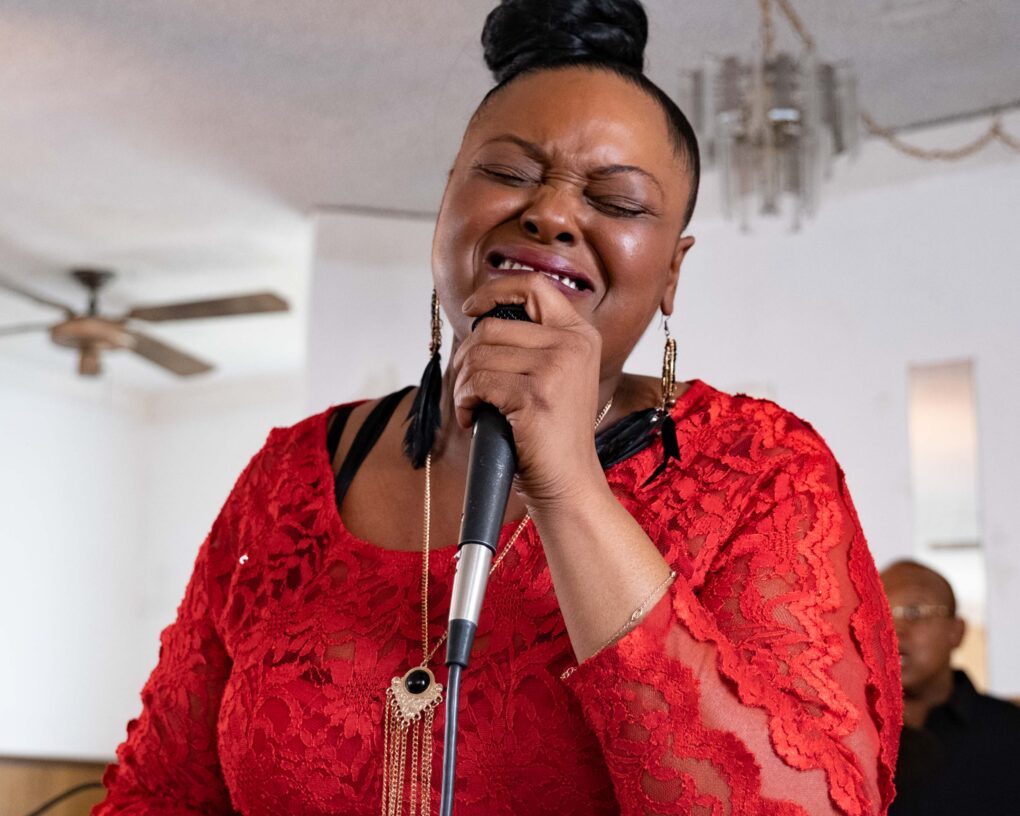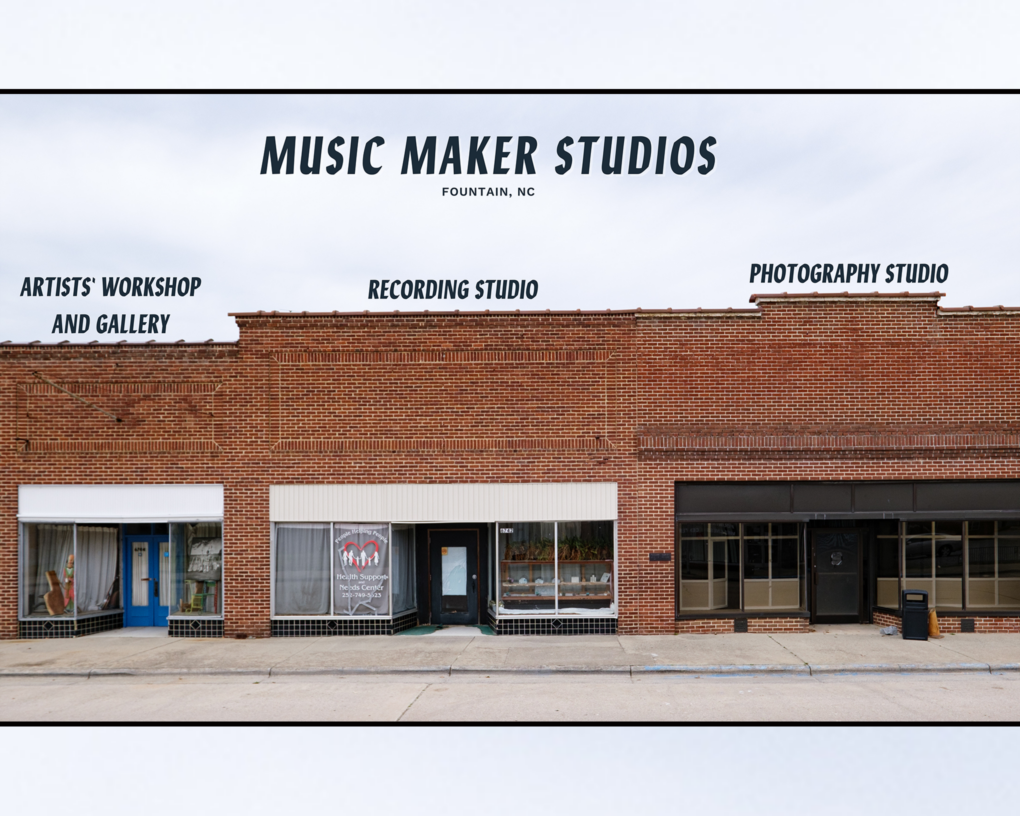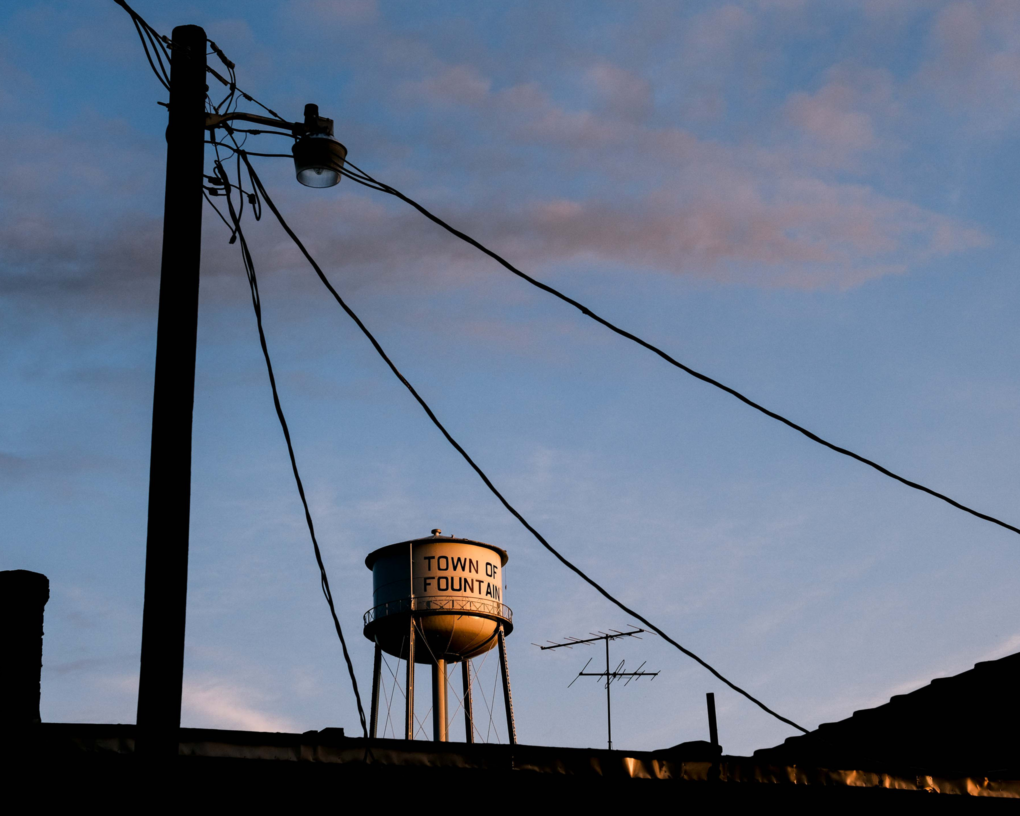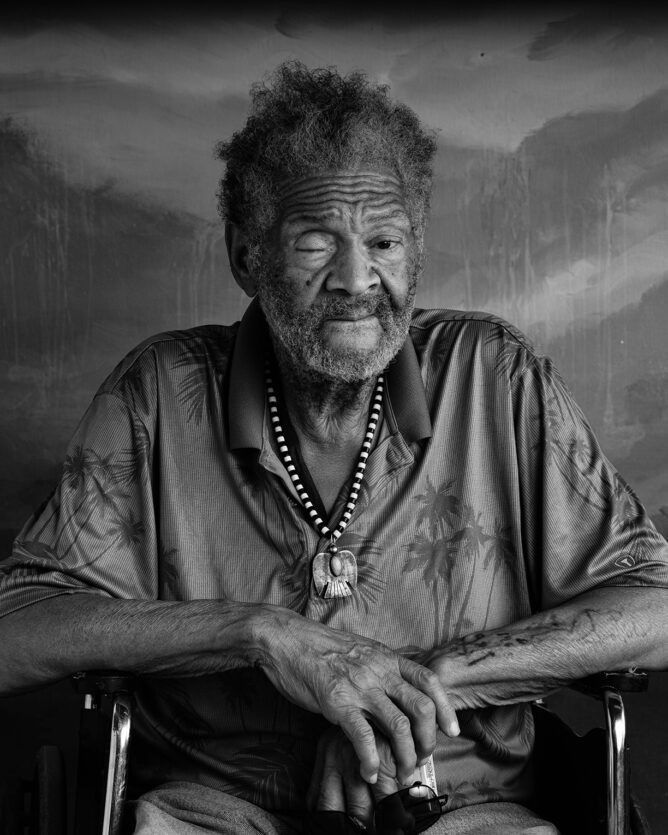
Sculpting Stories
Featured“Everything has a character.” Freeman Vines reclines in his armchair. Tendrils of smoke curl around his face as he puffs his cigar. “I sit with the wood, look at it, then, it tells me what it will be.” He taps the ash off the end into his lap, where it falls among wood shavings.
Freeman studies attention. He considers the history of each slab of pine, maple, birch that he selects. Not as a recitation of observable facts, but as a practice in listening. He hands me one of his creations and asks, “What do you see?”
When I respond, “a guitar body,” he shakes his head and says, “you’re not really looking.” With some trepidation, I attempt to try on Freeman’s perspective. I take in the wood; hold its heaviness, follow the dark knots as they gather together at its base. “A hurricane,” I say.
“Now you’re talking,” Freeman says emphatically. “Everyone sees something different,” he tells me, “if they try to look.”
Freeman Vines is an artist, luthier and spiritual philosopher. I’m sitting with him in his studio in Fountain, North Carolina. When Freeman met Music Maker Foundation co-founder and Executive Director, Tim Duffy, in 2015, his workshop was his yard. A man of the earth, Vines prefers working in the open air. But it left his creations vulnerable to theft and damage from the elements. Tim can recall uprooting discarded guitar bodies buried in the ground.
Tim and Freeman found kindred spirits in one another. A trained folklorist and photographer, Tim also practices looking beyond the surface, to catch the light underneath. Music Maker and Vines collaborated to create Vines’ internationally recognized exhibit, Hanging Tree Guitars, which received funding from the National Endowment for the Arts. The accompanying book, published in 2020, was rated one of NPR’s best books of the year.
Freeman lives and works in Fountain, an eastern-NC town surrounded by sweet potato and cotton fields. In 1903, it was incorporated as a stop along the Eastern Carolina Railway and retains its turn-of-the-century charm in its brick buildings on the main street. Drive too fast down highway 222–also known as East Wilson street—and you might miss it.
Fountain has a population of 385, and the most recent figures show the unemployment rate at 20.5%. The average household income is $24,125. It is situated within Pitt County, which is registered as a Tier 1 county—the highest level of economic distress.
Slow down, take a closer look around and you’ll see this overlooked region is home to an enormous community of African American sacred soul musicians that is nothing short of a revelation. Tim describes it as “discovering the Pacific Ocean is under your feet.”
Soon after Freeman met Tim, Freeman introduced Tim to his sister, Alice Vines. Alice lives in the neighboring city of Greenville, and has been singing and performing for over half a century. She and her sisters comprise the gospel group, The Glorifying Vines Sisters. She is also the Senior Pastor at Believe In Jesus Ministries, a church with over 100 years of history. Alice is a matriarch in a large family, and a pillar of her community.
Through Alice, Music Maker has found a tremendous community of talented gospel groups from the surrounding area. We recorded eleven of these groups (including Faith & Harmony, the Dedicated Men of Zion, The Glorifying Vines Sisters and Johnny Ray Daniels) in partnership with a nationally recognized label, Bible & Tire Recording Co. With their support, we also co-produced a multimedia project in Freeman’s current studio, The Sacred Soul of North Carolina, which documents the stories of these people and this musical tradition and aired on PBS NC.
While we recorded many groups during the Sacred Soul project, there remains a host of musicians from the region that have yet to record their own solo records: Big Walt, The Johnsonaires, Bishop Albert Harrison, The Spiritualaires, Blind Butch, Melody Harper, Jerry Harrison, Gospelettes, and Shirley McNeil, to name a few. These are working people who are passionate about bringing their traditions forward, despite the limited time and resources they have to support their musical careers.
We seek to create a space where artists have access to the high quality recording, photography and videography production they need to have their voices heard. This project will benefit not only the gospel groups in the area, but Music Maker artists from all over, providing them with a quiet destination dedicated solely to their craft.
On E. Wilson Street, three adjoining buildings that were previously vacant are now under Music Maker’s care. The first is the Artist-in-Residence Workshop. This serves as Freeman’s workshop; the artist now has a clean, secure space to continue creating. It also provides him the space to meet with press and to host visitors (including the New York Times this past spring).
In the 29 years since our founding, Music Maker has not had an operational audio recording studio to support our programming. We need a proper, local facility to give these artists’ music the time and production quality it deserves. Next to Freeman’s studio stands what will become our state-of-the-art recording studio, with the help of the Robert & Mercedes Eichholz Foundation and supporters like you.
Our blueprint is to construct a world-class studio that can host a variety of vocal ensembles. We’ll record new albums for a wide range of acts; from solo musicians to electric blues bands and gospel ensembles.
For band recordings, Tim will be joined by our expert partners Bruce Watson (Fat Possum, Big Legal Mess, Bible & Tire) and other industry professionals to engineer the sessions, creating high-quality, multi-track recordings. Music Maker will release these recordings to the public on streaming platforms and will produce and distribute CDs. Each group or artist will be granted CDs free of charge to use for promotion and sale at events. All of our recordings have a permanent home at the Southern Folklife Collection of Wilson Library at the University of North Carolina, where these stories and songs are preserved for posterity.
The third building is home to our Photography and Videography Studio. Tim Duffy’s tintype photographs of musicians have been displayed in museums and galleries across the country. In the increasingly digital landscape of music marketing, photo-graphs are invaluable for musicians to book performances, self-promote, and to establish an online presence. Professional videographers will utilize the space to create music videos that will serve as promotional materials for upcoming album releases and to film interviews to document artists’ stories.
Fountain is the ideal location to house these studios. It is both centrally located and incredibly affordable. A 50-minute drive from Raleigh and just 20 miles east of I-95, Fountain is easy to reach for our out-of-state musicians. We’re also fortunate to have the full support of Fountain’s mayor, Kathy Parker, Alex Albright, the owner of R.A. Fountain–Fountain’s local music venue, and Julia Smith, Director of Fountain Wellness Center, in this work. Parker, Albright, Smith and the Vines see a future where Fountain can thrive as a haven for artists with a rich and evolving cultural heritage.
We envision a refuge where artists from the region and beyond can come together to collaborate. As an antidote to historically extractive and culturally appropriative music business practices in America, our goal is to provide sustainable, holistic and accessible artistic programming.
As Alice Vines puts it, “This is a good step for Fountain. Old things pass away and we’ve got new ones got to come. This is a new thing that they’re doing in Fountain. It’s going to prosper. Hang on in there and let’s just make it work. It’s all of us together, we can make it work.”
By fostering a nurturing environment that values the artists’ voices, experiences, and cultural heritage, we aim to empower and uplift musicians, ensuring that their artistry remains at the forefront. Together, let’s forge a new path that honors the true essence of music-making and redefines the landscape of the industry.
When Tim and Denise Duffy co-founded Music Maker Foundation in 1994, they imagined what they couldn’t yet see around them: a thriving community where the music makers, the people who give us the songs that carry us through life, are celebrated for their invaluable contributions to our cultural tapestry. Music Maker has spent almost three decades building this future alongside artists, supporters, and donors. Join us in this next chapter of our journey and together, we can ensure we can sing these melodies for generations to come.
By Tess Stogner.
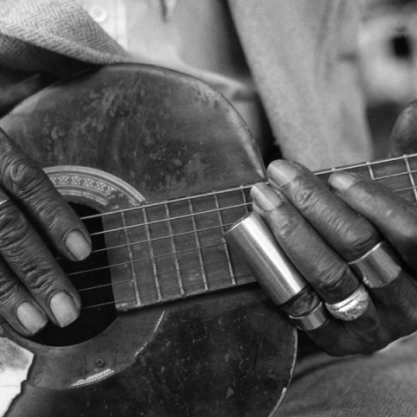
Get involved
& give back
The Music Maker Foundation is a 501(c)(3) nonprofit organization that depends on thousands of supporters. Together, we work to meet the day-to-day needs of the artists who create traditional American music, ensure their voices are heard, and give all people access to our nation’s hidden musical treasures. Please contribute or shop our store today.
